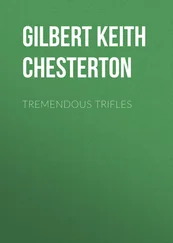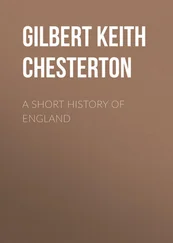Gilbert Chesterton - Manalive
Здесь есть возможность читать онлайн «Gilbert Chesterton - Manalive» весь текст электронной книги совершенно бесплатно (целиком полную версию без сокращений). В некоторых случаях можно слушать аудио, скачать через торрент в формате fb2 и присутствует краткое содержание. Год выпуска: 1912, Издательство: Thomas Nelson and Sons, Жанр: Классическая проза, на английском языке. Описание произведения, (предисловие) а так же отзывы посетителей доступны на портале библиотеки ЛибКат.
- Название:Manalive
- Автор:
- Издательство:Thomas Nelson and Sons
- Жанр:
- Год:1912
- ISBN:нет данных
- Рейтинг книги:3 / 5. Голосов: 1
-
Избранное:Добавить в избранное
- Отзывы:
-
Ваша оценка:
- 60
- 1
- 2
- 3
- 4
- 5
Manalive: краткое содержание, описание и аннотация
Предлагаем к чтению аннотацию, описание, краткое содержание или предисловие (зависит от того, что написал сам автор книги «Manalive»). Если вы не нашли необходимую информацию о книге — напишите в комментариях, мы постараемся отыскать её.
Manalive — читать онлайн бесплатно полную книгу (весь текст) целиком
Ниже представлен текст книги, разбитый по страницам. Система сохранения места последней прочитанной страницы, позволяет с удобством читать онлайн бесплатно книгу «Manalive», без необходимости каждый раз заново искать на чём Вы остановились. Поставьте закладку, и сможете в любой момент перейти на страницу, на которой закончили чтение.
Интервал:
Закладка:
“Why does everybody repeat riddles,” went on Moon abruptly, “even if they’ve forgotten the answers? Riddles are easy to remember because they are hard to guess. So were those stiff old symbols in black, red, or green easy to remember because they had been hard to guess. Their colours were plain. Their shapes were plain. Everything was plain except the meaning.”
Inglewood was about to open his mouth in an amiable protest, but Moon went on, plunging quicker and quicker up and down the garden and smoking faster and faster. “Dances, too,” he said; “dances were not frivolous. Dances were harder to understand than inscriptions and texts. The old dances were stiff, ceremonial, highly coloured but silent. Have you noticed anything odd about Smith?”
“Well, really,” cried Inglewood, left behind in a collapse of humour, “have I noticed anything else?”
“Have you noticed this about him,” asked Moon, with unshaken persistency, “that he has done so much and said so little? When first he came he talked, but in a gasping, irregular sort of way, as if he wasn’t used to it. All he really did was actions–painting red flowers on black gowns or throwing yellow bags on to the grass. I tell you that big green figure is figurative– like any green figure capering on some white Eastern wall.”
“My dear Michael,” cried Inglewood, in a rising irritation which increased with the rising wind, “you are getting absurdly fanciful.”
“I think of what has just happened,” said Michael steadily. “The man has not spoken for hours; and yet he has been speaking all the time. He fired three shots from a six-shooter and then gave it up to us, when he might have shot us dead in our boots. How could he express his trust in us better than that? He wanted to be tried by us. How could he have shown it better than by standing quite still and letting us discuss it? He wanted to show that he stood there willingly, and could escape if he liked. How could he have shown it better than by escaping in the cab and coming back again? Innocent Smith is not a madman–he is a ritualist. He wants to express himself, not with his tongue, but with his arms and legs– with my body I thee worship, as it says in the marriage service. I begin to understand the old plays and pageants. I see why the mutes at a funeral were mute. I see why the mummers were mum. They MEANT something; and Smith means something too. All other jokes have to be noisy–like little Nosey Gould’s jokes, for instance. The only silent jokes are the practical jokes. Poor Smith, properly considered, is an allegorical practical joker. What he has really done in this house has been as frantic as a war-dance, but as silent as a picture.”
“I suppose you mean,” said the other dubiously, “that we have got to find out what all these crimes meant, as if they were so many coloured picture-puzzles. But even supposing that they do mean something–why, Lord bless my soul!–”
Taking the turn of the garden quite naturally, he had lifted his eyes to the moon, by this time risen big and luminous, and had seen a huge, half-human figure sitting on the garden wall. It was outlined so sharply against the moon that for the first flash it was hard to be certain even that it was human: the hunched shoulders and outstanding hair had rather the air of a colossal cat. It resembled a cat also in the fact that when first startled it sprang up and ran with easy activity along the top of the wall. As it ran, however, its heavy shoulders and small stooping head rather suggested a baboon. The instant it came within reach of a tree it made an ape-like leap and was lost in the branches. The gale, which by this time was shaking every shrub in the garden, made the identification yet more difficult, since it melted the moving limbs of the fugitive in the multitudinous moving limbs of the tree.
“Who is there?” shouted Arthur. “Who are you? Are you Innocent?”
“Not quite,” answered an obscure voice among the leaves. “I cheated you once about a penknife.”
The wind in the garden had gathered strength, and was throwing the tree backwards and forwards with the man in the thick of it, just as it had on the gay and golden afternoon when he had first arrived.
“But are you Smith?” asked Inglewood as in an agony.
“Very nearly,” said the voice out of the tossing tree.
“But you must have some real names,” shrieked Inglewood in despair. “You must call yourself something.”
“Call myself something,” thundered the obscure voice, shaking the tree so that all its ten thousand leaves seemed to be talking at once. “I call myself Roland Oliver Isaiah Charlemagne Arthur Hildebrand Homer Danton Michaelangelo Shakespeare Brakespeare–”
“But, manalive!” began Inglewood in exasperation.
“That’s right! that’s right!” came with a roar out of the rocking tree; “that’s my real name.” And he broke a branch, and one or two autumn leaves fluttered away across the moon.
Part II
The Explanations of Innocent Smith
Chapter I
The Eye of Death; or, the Murder Charge
The dining-room of the Dukes had been set out for the Court of Beacon with a certain impromptu pomposity that seemed somehow to increase its cosiness. The big room was, as it were, cut up into small rooms, with walls only waist high–the sort of separation that children make when they are playing at shops. This had been done by Moses Gould and Michael Moon (the two most active members of this remarkable inquiry) with the ordinary furniture of the place. At one end of the long mahogany table was set the one enormous garden chair, which was surmounted by the old torn tent or umbrella which Smith himself had suggested as a coronation canopy. Inside this erection could be perceived the dumpy form of Mrs. Duke, with cushions and a form of countenance that already threatened slumber. At the other end sat the accused Smith, in a kind of dock; for he was carefully fenced in with a quadrilateral of light bedroom chairs, any of which he could have tossed out the window with his big toe. He had been provided with pens and paper, out of the latter of which he made paper boats, paper darts, and paper dolls contentedly throughout the whole proceedings. He never spoke or even looked up, but seemed as unconscious as a child on the floor of an empty nursery.
On a row of chairs raised high on the top of a long settee sat the three young ladies with their backs up against the window, and Mary Gray in the middle; it was something between a jury box and the stall of the Queen of Beauty at a tournament. Down the centre of the long table Moon had built a low barrier out of eight bound volumes of “Good Words” to express the moral wall that divided the conflicting parties. On the right side sat the two advocates of the prosecution, Dr. Pym and Mr. Gould; behind a barricade of books and documents, chiefly (in the case of Dr. Pym) solid volumes of criminology. On the other side, Moon and Inglewood, for the defence, were also fortified with books and papers; but as these included several old yellow volumes by Ouida and Wilkie Collins, the hand of Mr. Moon seemed to have been somewhat careless and comprehensive. As for the victim and prosecutor, Dr. Warner, Moon wanted at first to have him kept entirely behind a high screen in the court, urging the indelicacy of his appearance in court, but privately assuring him of an unofficial permission to peep over the top now and then. Dr. Warner, however, failed to rise to the chivalry of such a course, and after some little disturbance and discussion he was accommodated with a seat on the right side of the table in a line with his legal advisers.
It was before this solidly-established tribunal that Dr. Cyrus Pym, after passing a hand through the honey-coloured hair over each ear, rose to open the case. His statement was clear and even restrained, and such flights of imagery as occurred in it only attracted attention by a certain indescribable abruptness, not uncommon in the flowers of American speech.
Читать дальшеИнтервал:
Закладка:
Похожие книги на «Manalive»
Представляем Вашему вниманию похожие книги на «Manalive» списком для выбора. Мы отобрали схожую по названию и смыслу литературу в надежде предоставить читателям больше вариантов отыскать новые, интересные, ещё непрочитанные произведения.
Обсуждение, отзывы о книге «Manalive» и просто собственные мнения читателей. Оставьте ваши комментарии, напишите, что Вы думаете о произведении, его смысле или главных героях. Укажите что конкретно понравилось, а что нет, и почему Вы так считаете.









